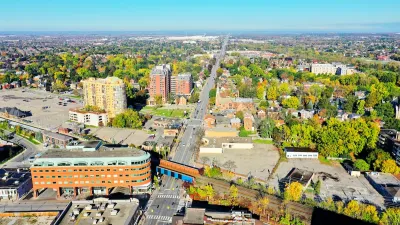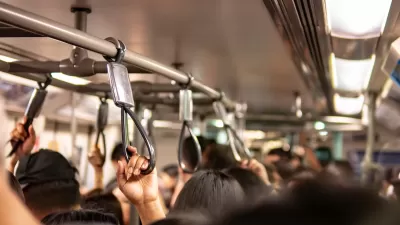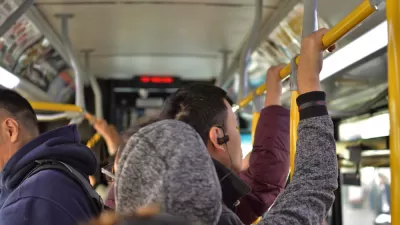The recession has made many commuters more transit-dependent while shrinking the public coffers that may for the bulk of transit service. Without further subsidies, agencies face tough choices because of this "incredible paradox."
"Between volatile fuel prices, a sea change in public attitudes towards the environment, and the enormity of the world's financial collapse, the nation's transit agencies have appeared more like amusement parks in the past year, riding a roller coaster of increased demand, increased cost and uncertain financial futures. But as the sobriety of 2009 has set in, this wild ride eased into a new reality: deficits, fare increases and cost-cutting strategies that are ushering in a new age of austerity that rivals any crisis that American public transit has ever experienced."
"Were the nation's transit agencies true businesses, many would have by now gone bankrupt. Eighty percent of the nation's transit agencies have reported declining operating budgets. Estimated annual operating deficits projected for 2009 treat millions like pocket change: $230 million for Los Angeles Metro, $160 million for Boston's Massachusetts Bay Transportation Authority, $200 million in Chicago, $100 million in San Francisco and $57 million in Atlanta. St. Louis Metro's $46 million deficit represents 21 percent of its operating budget."
Thanks to Josh Stephens
FULL STORY: Mass Transit’s Reversal of Fortune

Alabama: Trump Terminates Settlements for Black Communities Harmed By Raw Sewage
Trump deemed the landmark civil rights agreement “illegal DEI and environmental justice policy.”

Planetizen Federal Action Tracker
A weekly monitor of how Trump’s orders and actions are impacting planners and planning in America.

Why Should We Subsidize Public Transportation?
Many public transit agencies face financial stress due to rising costs, declining fare revenue, and declining subsidies. Transit advocates must provide a strong business case for increasing public transit funding.

Understanding Road Diets
An explainer from Momentum highlights the advantages of reducing vehicle lanes in favor of more bike, transit, and pedestrian infrastructure.

New California Law Regulates Warehouse Pollution
A new law tightens building and emissions regulations for large distribution warehouses to mitigate air pollution and traffic in surrounding communities.

Phoenix Announces Opening Date for Light Rail Extension
The South Central extension will connect South Phoenix to downtown and other major hubs starting on June 7.
Urban Design for Planners 1: Software Tools
This six-course series explores essential urban design concepts using open source software and equips planners with the tools they need to participate fully in the urban design process.
Planning for Universal Design
Learn the tools for implementing Universal Design in planning regulations.
Caltrans
Smith Gee Studio
Institute for Housing and Urban Development Studies (IHS)
City of Grandview
Harvard GSD Executive Education
Toledo-Lucas County Plan Commissions
Salt Lake City
NYU Wagner Graduate School of Public Service





























